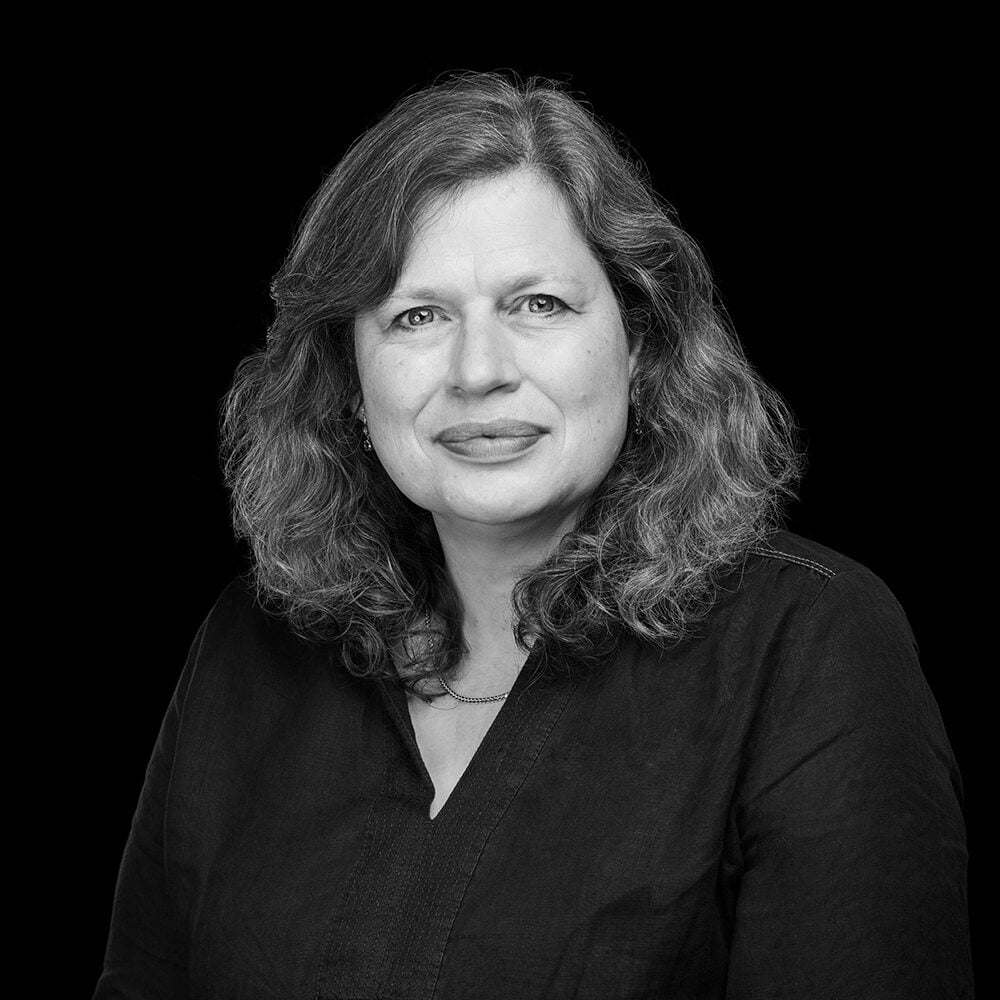Designing an Ethical Organisation: 7 Suggestions
Do you want to be a positively, actively ethical organisation – or do you just not want to be caught out being unethical?
Be honest, at least with yourself. Are you increasing focus on policies and compliance to avoid having dishonest workers, or being accused of bad practices? If so, that’s ok, and there is lots of good advice on controlling your people to prevent unethical behaviour – see Harvard Business Review or WEF articles.
But I hope you are more ambitious, and optimistic. Do you want your organisation to be a genuine force for good, a driver of progress, and a positive ethical example? That’s what we’re aiming for at Oxford, for ourselves and for our clients. We’ve been a B Corp for 3 years, and we’ve been working with clients on their Purpose, Mission and Values for a lot longer. The biggest thing we’ve learned is that none of us can do this alone – we need the support, inspiration, and shared ideas of others around us. So in that spirit, let’s share what we’ve learned so far.
Be clear on who you are, and who you want to be
Every organisation has Values nowadays. Sometimes they are bland and vague, written by committee and frankly sound like everyone else’s. Sometimes they are crafted by an inspiring individual and burst with passion, but don’t feel like they represent the whole team. Sometimes – if you have worked on them together, and been brave and honest and challenged yourselves to get them right – they bring to life the core beliefs of your community and express what deeply matters to you in a way that lifts your heart and directs your work.
In our experience of supporting organisations to find and express their values, it’s an investment worth making. The right values are so deeply connected to who the organisation is, that it feels like they are uncovered, not created. And they become so intrinsic to what you do, that everyone just knows them. I worked for ten years at Mars, and 20 years later I can still remember the 5 Principles of Quality, Responsibility, Mutuality, Efficiency and Freedom which are the cornerstone of every decision.
If your whole organisation knows, understands and believes in your values, then that’s a vital foundation for establishing ethical decision making.
At Oxford, our Values were developed with our whole community back in 2018, and in fact reflect what we’ve believed in since our establishment in 1987.

Make every choice with ‘3 Ps’ in mind
We make multiple decisions every day, often under time pressure and with limited information. It’s easy to fall into the trap of doing the easy thing, the less-expensive thing, the thing that will least cause discussion, the thing we usually do…
But to become a truly ethical organisation means challenging your choices every day, and asking ‘what is the right thing to do?’. But you’re running a business, not a charity, so ‘right’ needs to be balanced. Think People, Planet and Profit (HBR) and find choices that aim for the sustainable sweet spot that balances all three.
|
People Planet Profit |
Of course, finding the balance of the 3Ps isn’t easy. Having a truly diverse group making those choices is key – only by bringing together all the relevant points of view, will you be confident you’ve considered all stakeholders. And only by engaging all the best brains – including external experts – will you find the creative, innovative solutions that you will need.
Progress is what counts (but make sure you count it)
Having set the ambitious ‘3Ps’ target for all your choices – in reality, what matters is making progress at every step. Don’t wait around for some miracle solution – you’ll be wasting time when you could be making things a bit better, now. And then keep pushing for more progress.
But make sure that you proactively test and evolve your plans. Too many organisations talk about ‘learning by doing’ but in reality just do things without being disciplined about the learning! Set measurable targets for improving lives for People and improving our environment on the Planet - and be clear on how you will collect the data and respond to the results. Aim for metrics that capture the impact you have, and not just the actions you take. Set timelines that enable you to adjust and improve what you are doing, so data analysis doesn’t arrive too late to make a difference. And be really honest about what you learn – if what you are doing turns out to have disappointing results, be brave enough to say so and change things!
We’ve been evolving our environmental measures and impacts for the last few years, and have been grateful for the advice of Supercritical to understand and measure our true carbon footprint and what actions we can take to reduce it. We’ve moved from carbon offsets to carbon capture, as we’ve understood their importance. Our biggest opportunity is to reduce business travel, through delivering virtual experiences that are as good, and even better, than face-to-face workshops. We are constantly evolving our use of the best technology and our facilitation skills, to make online meetings ever more engaging and effective. We still love in-person meetings, but only when absolutely necessary. And our clients agree – virtual workshops can be more democratic and inclusive, better at capturing inputs and learnings, faster to get to outputs and easier to replicate and communicate. Better for People, as well as for Planet (and profit – because travel costs money as well as carbon).
Bake it in and build new habits
Making ethical decisions that consider the 3Ps sounds straightforward enough, but we know that the reality is still challenging. Even with the right values setting the direction, and a deep understanding of what you want to achieve, you still have large teams of people very busy doing their day jobs, who have habits and preferred tools and approaches that enable them to be efficient and effective – but may not set them up to make ‘good’ choices every day.
How do you break old habits and build new ones? You need to ‘bake in’ the new thinking to the everyday tasks, so that it’s actually easier to do things the new way. Challenge every thinking tool, template, process and approach you use as an organisation. Where in the process are people required to consider the impact on all stakeholders? Where is the guidance that enables Planet considerations to be built in at an early stage? Where in the standard outputs, strategies and growth plans is the space for teams to demonstrate their 3P thinking and show how and why they have made ‘good’ ethical choices (including what they’ve decided NOT to do)?
We’ve recently re-examined all our best-practice capability frameworks, commercial tools and brand growth planning processes, to ensure that 3P thinking isn’t a ‘nice to have’ or an add-on at the end, but is baked in from start to finish. For every client and every project in future, we’ll be sharing this approach, and we expect our clients to want a similar solution – so that new habits are built, and ethical decisions are the standard, inevitable outcomes.
Stick to your boundaries
Even with all this in place, you will face challenges and temptations. Perhaps you can take that intercontinental flight as a one-off, because it will be fun to meet face to face. Maybe it’s ok to use a supplier with a less-than-convincing ethical background because they’ve said all the right things about changing in future. If it’s going to take too long to understand all the People impacts of your plan, and time is tight, probably it’ll be ok to do it right next time…
Of course we all have to be pragmatic, and none of us is perfect. But setting really clear boundaries can help to keep us on the right path. Know where your red lines are, and be willing to accepts costs and inconveniences to stay within them. In a quote often ascribed to Laura Schlessinger, ‘Principles don’t mean anything until they cost you something’.
At Oxford, we love to work with new and different clients, and of course our business model requires us to win new business all the time. But as a privately-owned business with B Corp principles, we are willing to say no to clients or projects that we don’t believe fit our values. It’s a privilege to be able to do that – our shareholders are our senior team, and are happy to accept any costs.
But that doesn’t mean we only work with organisations that are already doing good – that would be too easy. We have a clear list of ‘no go’ industries – tobacco, gambling, weapons, fossil fuels. But we also want to be part of positive change. An ethical business doesn’t need to live in an ivory tower, because having a good impact means helping big, challenging businesses to do better. We carry out a ‘due diligence’ assessment of all potential clients, looking at their past behaviours and also their future intentions, looking for solid evidence that they are building an ethical future for themselves. We’re alert to Greenwashing, but also know how hard it is to find that sustainable sweet spot, and how important the journey of change is. We state our principles and expectations clearly. And if we ever find ourselves working on a client or project where we don’t believe the outcome and impact will be consistent with our principles – we are lucky enough to be able to just walk away. We’ve done that a few times, and although it costs money, it feels good.
Keep inspiring company
In addition to knowing who and what you won’t do, be proactive in finding people and organisations that will inspire and encourage you. The B Corp family brings together many like-minded businesses and it’s a privilege to be a member. Find the thought leaders, writers, and podcasts that inspire you.
Of course the best learnings come from organisations like your own in terms of industry and scale. In the last few weeks we’ve been setting up sharing forums which bring together a dozen or so of our big corporate clients – including direct competitors who’d rarely get the chance to meet and talk – to discuss the challenges of sustainability with each other and with experts. Some powerful, insightful conversations have happened where we’ve created an intimate and confidential space. This is one of Oxford’s unique contributions – we have amazing clients, and they can be of huge support to each other if we introduce them. Every organisation will have their own unique contribution that they can make – perhaps leading a commitment to better supplier practices, or creating a data-sharing platform. Keep inspiring company, and also be the inspiring company that others need.
Share your story
Finally, back to my first point. Share your experience and your learnings, generously and honestly, so that other organisations can gain knowledge and confidence to follow their own journey. None of us can do this alone, but together we can do anything. In designing your own organisation to be ethical, you can support and inspire others to do the same. We’ve tried to do a little of that here, and would be happy to share any of our experiences or ideas. Just get in touch!
About the author
Vanessa Andrews is a member of Oxford’s leadership team with a real passion for consulting. Vanessa's work covers all aspects of Marketing, Sales and Commercial Excellence.
Want to learn more about how we could help you to maximise the potential of a cross-functional team?

Share this
You May Also Like
These Related Stories

What is a Cross-Functional Team?
.png)
OxfordSM wins coveted Brandon Hall Group HCM Excellence Award™ for Learning and Development

.png?width=657&height=57&name=OXFORD%20LOGO%20(1).png)
No Comments Yet
Let us know what you think